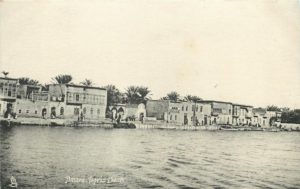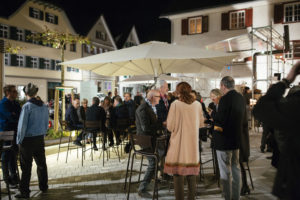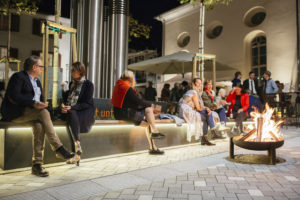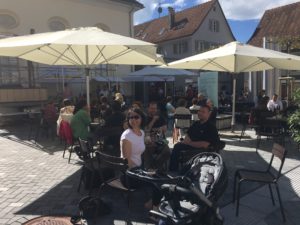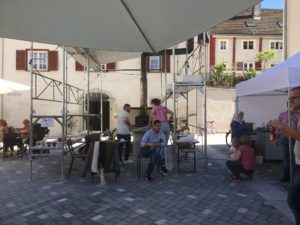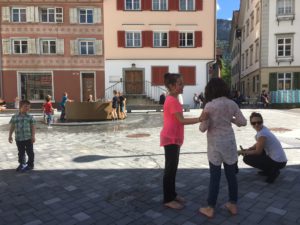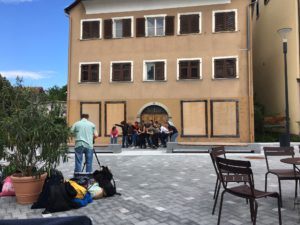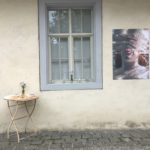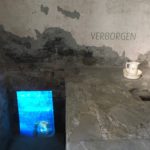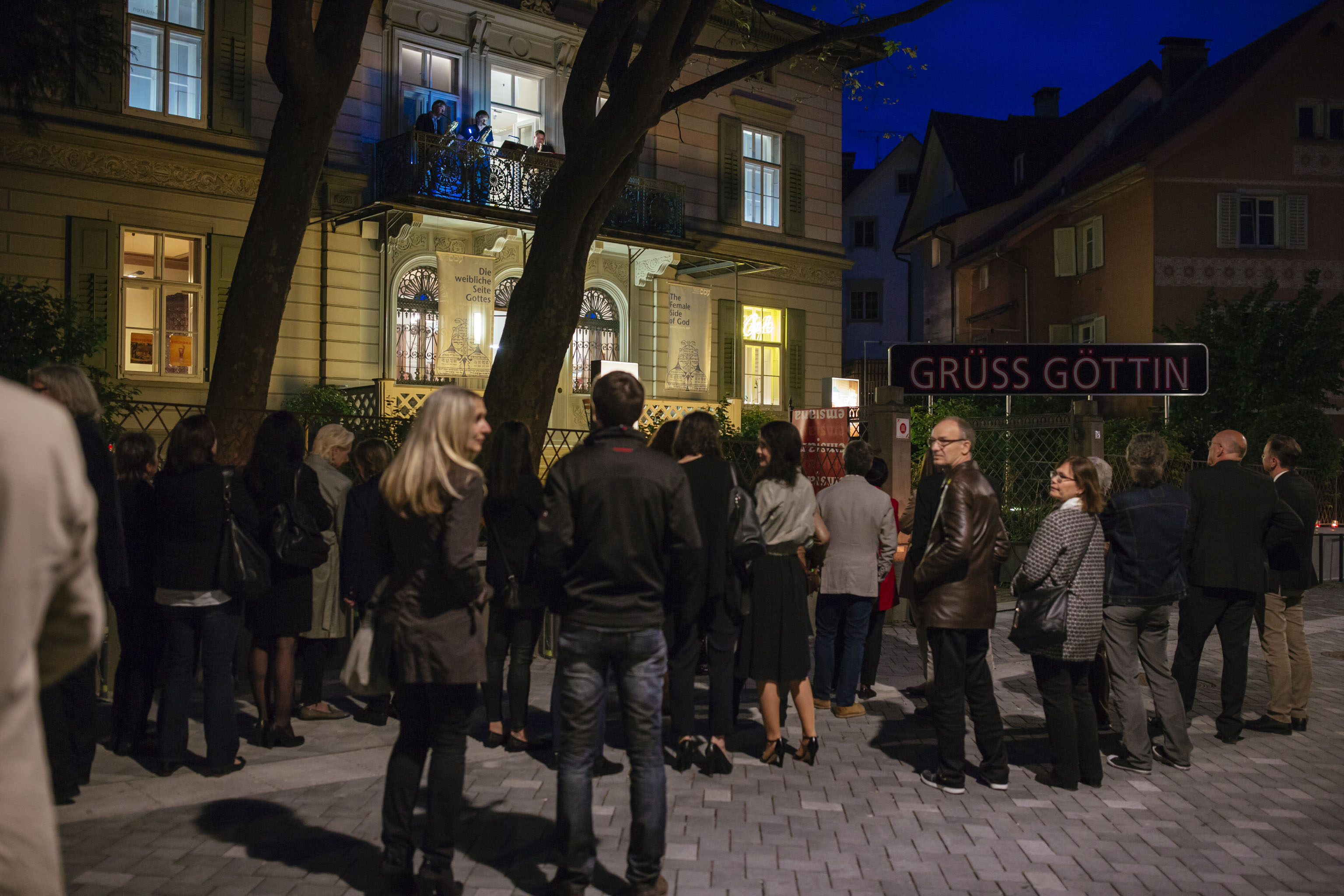
Musicians on the balcony of the museum
Najem Wali made it to Germany just in time. In 1980. The war between Iraq and Iran had begun. And the student of literature who dreamed of becoming a writer was already known as a political dissident, an “enemy of the people” to Saddam Hussein and the Baath party regime. A few months he had already enjoyed the special attention of the party’s officials, in jail. And for somebody like him in 1980 only the worst of the front was waiting, a secure way to heaven or hell. For some kind of luck, one of the subjects he had studied was German literature. So he was seeking Asylum in Germany. Two times to be taken in custody pending deportation was waiting for him. But in the end he made it.
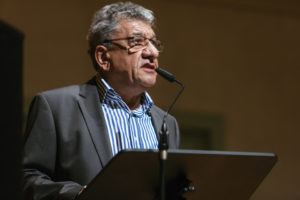
Now he is an acclaimed author, living in Berlin, invited to offer a crowded “Markus Sittikus Auditorium” in Hohenems his opening speech for the Emsiana Festival on May 11, 2017. Every year in May a bunch of cultural institutions and initiatives in the small town on the border brings together music, literature, art, history, and challenges of today.
“Hohenems. Babylon” is the theme of 2017: the hybris of man, the Diaspora, and the clash and the richness of a diversity of languages. Najem Wali, born in Amara, a small Iraqi border town next to Iran, still remembers the Jewish quarter of his hometown. And the story of Iraq’s minorities, among them prominently its flourishing Jewish communities, going back to the Babylonian “Exile” 2600 years ago, is one of the lasting themes in his novels and essays.
His reflections about the role of small border towns like Amara and Hohenems, and the crossroads of Exiles making the world more complex, was deeply rooted in his life.
So Najem not only opened the program, he also – a day later – read from his autobiography (“Bagdad – Memories of a Metropolis”). And he had a lot of fun during the four days in Hohenems, with both the locals and the guests. This year the festival centered – in a way – around a “Babylonian” bread bakery on the Salomon Sulzer Square in front of the former synagogue. A young team of enthusiasts was occupied all day with producing fresh bread, served together with all kind of dishes brought by neighbors and other locals from all tribes. Turkish salads and stuffed vine leaves, Indian food and typical local dishes like “Riebel” (a simple and very traditional recipe for cornmeal) blended together in harmony. The backbone though of the outdoor kitchen – serving the ever growing crowd during the festival – were refugees from Syria and Afghanistan, and a Palestinian couple who made it to Hohenems already a few years ago, now happy to learn something about Jewish history and to tell about their loss of home too…
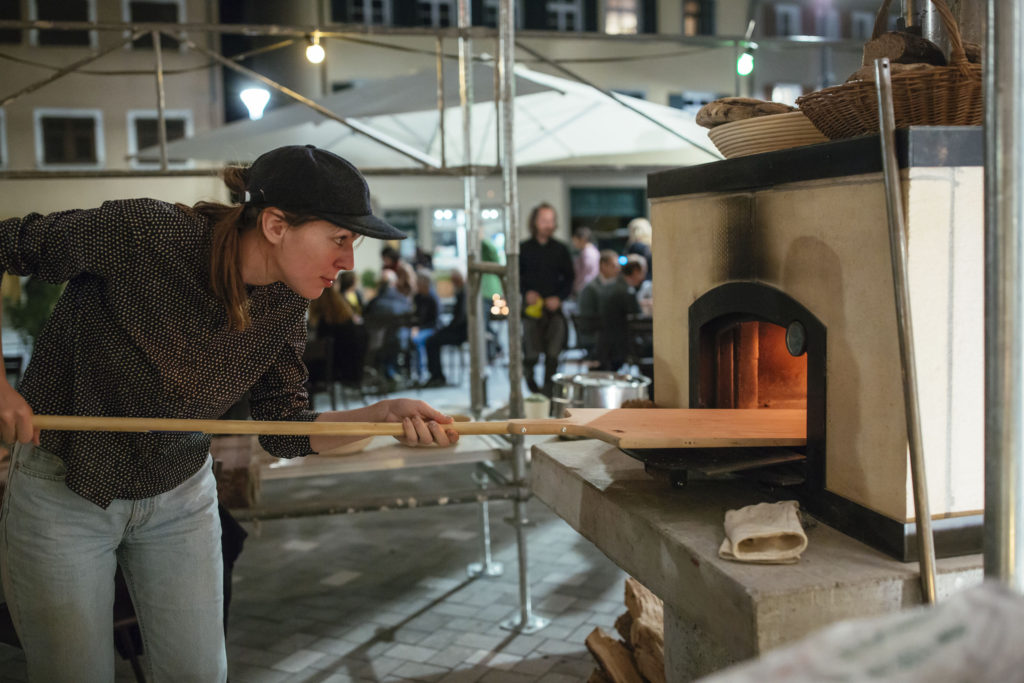
The Babylonian dilemma and the richness of languages was present also during the musical part of the opening event. Johannes Schwendinger sang ten psalms, with music by Antonin Dvorak. But he had his own turn on them: he sang them in Czech and German, Hebrew, Turkish, Farsi, and Arab, Icelandic, French, Mandarin, and English.

Among the other highlights of the musical program the band “Light in Babylon” surprised in particular, a bunch of devoted musicians playing “world music” with Hebrew and Turkish texts. Michal Elia Kamal, the singer, was born in Tel Aviv into an Israeli-Iranian family – and she is proud to be both, Jewish and Persian. Now she is based in Istanbul performing together with a French guitarist, a Turkish master of the santur (a Turkish dulcimer), a Scottish percussionist and an English bass player. If you want to listen to their music go to http://www.lightinbabylon.com/de/
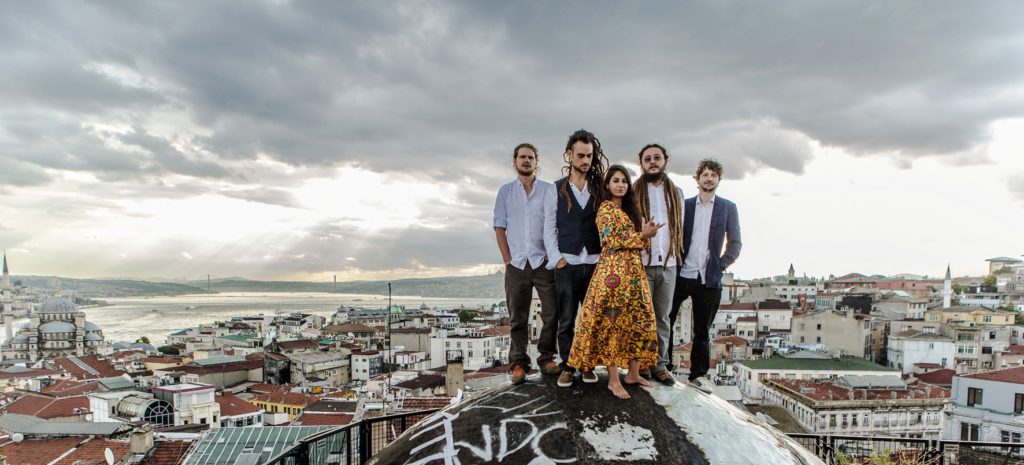
As in former years exhibitions during the festival explored locations in the Jewish quarter and the “Christengasse” usually not regularly open for the public, like basements, attics and stables, or houses about to be restored. This year we opened the Mikvah, the Jewish ritual bath to the artists Ursula Dünser and Karin Nussbaumer. Their installation invited visitors to immerse their wishes, put on paper in all languages, into a water tub and to see how all their writings blend together, coloring the water ever more blue. Let’s hope their wishes are nice – and come true…
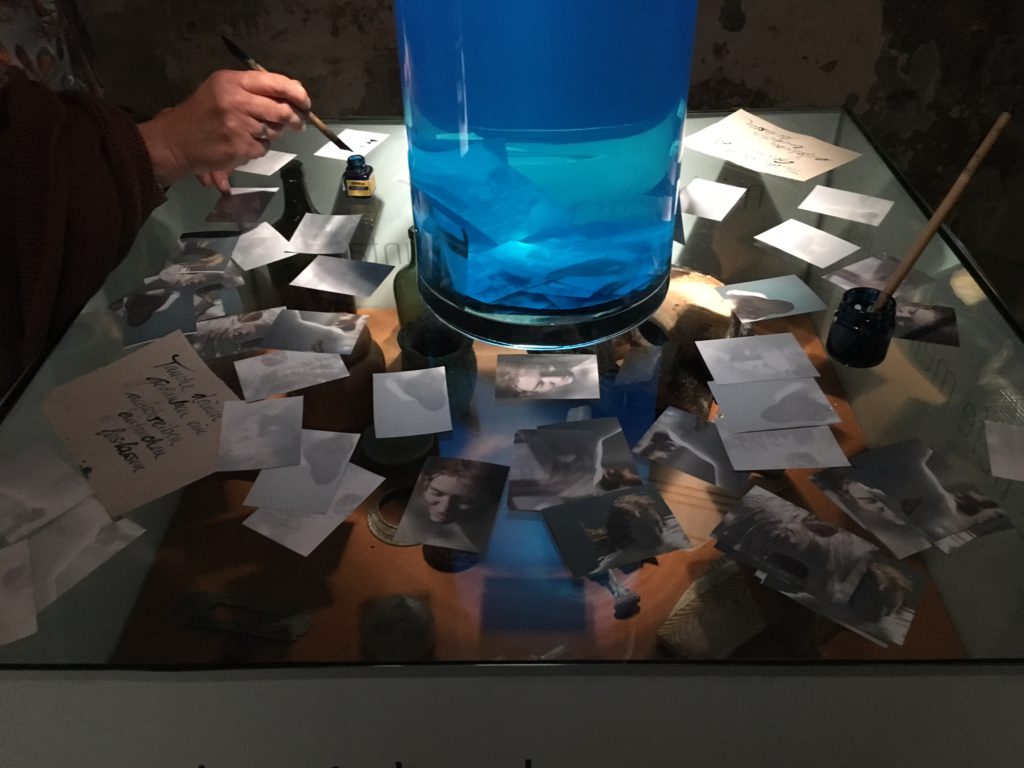
While we still enjoy the memories of this year’s Emsiana Najem Wali already travelled to the Iraq again, invited by the German news magazine “Der Spiegel”. He is still dreaming of an Iraq that will match with his childhood memories of Amara, the little multi-cultural town on the banks of the Tigris.
